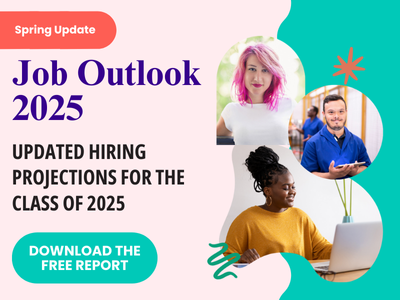NACE Journal / Summer 2024
Amplified by renewed calls for racial and economic justice over the last few years, career development organizations around the world have undertaken conversations about the role of race and anti-racism in career counseling, education, research, and practice. CERIC, a career development association in Canada; the National Institute for Career Education and Counselling in the United Kingdom; and the National Association of Colleges and Employers (NACE), the Council for the Advancement of Standards in Higher Education, and the National Career Development Association in the United States have all issued statements about, published written pieces on, and established strategic priorities and standards for racial equity in career development.1
Corporations have also issued promises and pledges toward racial justice, though much of that work has been dismantled or removed in subsequent years.2
Race in Career Development
Decades of research have shown that race represents a significant barrier to the financial security and well-being of Black and Indigenous workers and workers of color. In the United States, Black, Indigenous, and people of color (BIPOC) communities face overt and systemic discrimination, wage gaps, social exclusion, and generational inequity, along with more limited opportunities for recognition, training, and advancement; higher unemployment rates; negative health impacts; and other challenges in reaching their career goals.3 For instance, a 2020 survey of Black and Latino-American workers found that one in four reported facing discrimination at work in the past year.4 Black and Indigenous bachelor’s degree graduates have double the unemployment rates of white graduates.5 These statistics capture some of the headwinds many BIPOC workers face in the pursuit of professional success and upward mobility.
In spite of this evidence, perspectives on and awareness of racism vary widely. In 2023, Pew Research found that 58% of white Americans felt that the United States had made a great deal or a fair amount of progress on racial equality in the past 60 years compared with only 30% of Black Americans who felt the same way. A full 32% of Black Americans felt that not much or no progress at all on racial equality had been achieved in the last 60 years.6 These diverging perspectives help to explain why attention to race and racism are contested and inconsistent in many spaces today.7
In a 2022 article, a UK-based research team in the United Kingdom wrote that “[c]areer development professionals focus on equality of outcome for all and support clients who experience structural disadvantages in their working lives.…[R]ace and ethnicity are a particularly key contemporary concern. Race as a powerful and enduring social construct is under scrutiny as we consider whether the diversity of our profession sees us fit to work with all clients in varied multicultural contexts.”8 Of course, diverse representation is only one part of addressing racism, and career leaders have advocated for attention to diversity, equity, inclusion, and justice in career services in order to reach equitable outcomes for BIPOC students.9
Race in Career Services
Career services offices interface with both educators and employers. Colleges’ and universities’ policies on racial equity are not always aligned with those of corporate employers, which can create tension for career services staff who wish to make progress on racial equity.10 The legally and socially precarious status of anti-racism in the United States and elsewhere has made some career services professionals reluctant to take a strong stance on racial equity.11 While policy debates continue, many career services offices find themselves with limited funds, diversity, language, and awareness to adequately address new racial equity and justice goals.12
One important question for career services staff who hope to support racial equity in their work is: How do race and racism show up in the student experience?
What do these racialized experiences look like? What considerations emerge for BIPOC college students as they interface with career services and undertake internships and other forms of experiential learning? And, how can career services staff better support students through these experiences? To answer these questions, I’ll share a few stories from my time leading a field experience program, along with research gathered from recent studies on the experiences of BIPOC students engaging with career services offices. Of course, there is tremendous diversity within BIPOC communities, and students have many different experiences. This will be an attempt to illuminate some of the ways in which race may present itself during the student experience.
Racialized Student Experiences
More research is needed, but there are some data about the racialized nature of students’ experiences with career services, and the ways in which race matters to many BIPOC students. Here are a few themes:
Leader and staff diversity. As a profession, career development has a history of lacking racial diversity.13 One study of career professionals in the United Kingdom estimated that the profession was 94% white.14 On top of this, the vast majority of research participants in career studies have been white.15 Research on the career needs and perspectives of BIPOC people has been described as “being in a state of emergency” due to how few studies have been done.16
Career services staff diversity holds important implications for BIPOC students. One Black student at a predominantly white university in a 2024 study suggested that seeing an all-white staff team in a career center would make him reluctant to engage with the center.17 “I’d rather go to [a Black career adviser],” the student said. “It would just make me feel more comfortable…. We don’t all have the same experiences, but a lot of us share the same experiences.” This student suggested that he would only be willing to engage in career planning after establishing trust with his career adviser. In the same study, one career counselor reported that due to experiences of discrimination and racialized trauma, some BIPOC students may need to establish trust and rapport before seeking career advice from career services staff.
Outreach and referrals. A 2003 study found that Black and Latine students were more likely to be referred to career services as a remedial measure by other administrators, rather than encouraged to go by family and friends. This may contribute to the perception among some BIPOC students that career services are punitive.18 The Black student discussed earlier in my 2024 study said that his BIPOC friends felt “more hesitation” about visiting career services. When asked why that might be true, the student said, “I think about a lot of BIPOC students coming from similar backgrounds of having to always work hard and having a perfectionist mindset … [which] makes it difficult to ask for help or seek out support … [You are used to] doing things yourself. It's just like, you can do it on your own. You don't need to reach out for help. It's not that bad yet.”19
The purpose of career services may be explained differently to white students than some BIPOC students by university administrators, especially Black and Latine students.20 Moreover, the message that BIPOC students are somehow inadequately equipped to succeed, or are otherwise less than white students, can create a deficit mindset among career practitioners if it is not balanced with knowledge of historic and modern systemic racism.21 General outreach to all students, simple emails, or connecting with BIPOC students only with deficit-based messaging may not facilitate BIPOC student engagement.22 Due to the presence of discrimination and bias on college campuses, it has been suggested that some BIPOC students prefer to be referred to a specific person in career services offices who is considered safe for BIPOC students to engage with.23 These referrals should only happen, however, with that adviser’s permission in order not to overload them.
Discrimination and bias in career advising. Some recent studies have suggested that many BIPOC students, perhaps Black students in particular, wish for career services offices to provide safe spaces to discuss experiences of racial discrimination and bias on campus and in internships.24 If career centers take a color-blind approach to career development that minimizes or denies the reality of racial discrimination, some BIPOC students may not want to engage. In my 2024 study, one staff member felt career services offices should not replicate the offerings of multicultural or identity offices. However, this limiting of the presence of conversations about race in career development may be seen as a lack of acknowledgement of the impact of race, racism, and discrimination, and may be off-putting to BIPOC students. It may signal that an office is not trustworthy or racially aware.
Some BIPOC students encounter bias during career and educational advising conversations, wherein staff stereotype advisees’ experiences, backgrounds, or capabilities.25 BIPOC students may be encouraged to limit their aspirations or pursue certain careers based on how advisers perceive them. The presence of conscious and unconscious bias can perpetuate the discouragement of many BIPOC students’ aspirations, in some cases without the counselor’s awareness. These experiences have significant negative impacts on many students’ self-efficacy and sense of possibility.26
Discrimination and bias in internships and other experiential learning opportunities. Just as BIPOC employees and college graduates face discrimination and racialized experiences in the workplace, so too do students.27 A 2020 NACE report found racial disparities in pay and BIPOC representation in internships.28 The dissolution of DEI efforts at many companies since 2020 also reflects a lack of investment in BIPOC employment recruitment, retention, and well-being.29
In my own experience teaching a field experience class, I have heard about racialized experiences students have had during their field placements. For example, one student told me that she felt uncomfortable with her nonprofit placement because there were no other BIPOC people working at the organization, something the staff never acknowledged during her time there. An employer told me that he witnessed a BIPOC student being asked to take on more than his fair share of work by two other white members of his internship team. One of the field instructors on my team let me know that she was concerned because two Somalian-American students in her class received failing scores on their field work from their supervisor, and she suspected race was a factor. BIPOC students have told me that field supervisors seem to bond more quickly and willingly with white students and offer them more learning opportunities. These are only some of the racialized student experiences I have encountered while teaching this course.
While employer relations staff may be aware of racial inequities in some employer environments, they may not feel comfortable challenging those employers to be more equitable.30 Ultimately, career educators do not have full control over the safety of workspaces and cannot always hold employers accountable to DEI standards—although some centers are making good progress.31
Recommendations
How, then, do career professionals better support BIPOC students as they navigate racialized experiences?
Here are a few suggestions:
- Consider creating supportive spaces for BIPOC students, especially BIPOC women, in your career center where they can “share ideas and learn from each other in a safe space.”32
- Conduct intentional and asset-based outreach to BIPOC students. Consider communicating through cultural groups, social media, and other spaces that BIPOC students may perceive to be trusted.33 This has been an effective strategy for broadening the reach of career services. It is also important to market in ways that are culturally appropriate, respectful of students’ agency, and acknowledge students’ intersectional identities.
- Create a career services office culture in which race and racism can be safely acknowledged and discussed. Implying that naming racism and racial bias is in any way taboo will stifle progress on racial equity.34
- Pay attention to career services staff diversity, BIPOC representation, retention, promotion, and support. There is evidence that even in well-funded and equity-championing career centers, BIPOC employees and BIPOC women may not be retained and supported fairly.35
- Examine practices that directly or indirectly center white students or white student experiences. The research on BIPOC student career needs is sparse, especially for specific BIPOC groups, including Black, Asian, Asian-American, Indian, Indigenous, and Latine students as well as BIPOC international students and others. Your current policies, tools, and approaches were likely created for white students and should be reexamined and revised if needed.
- Keep gathering data—quantitative and qualitative—about the racialized experiences of your BIPOC students. Consider also the racialized nature of white student experiences. White students may not be as aware of racial dynamics in career and should be encouraged to explore their own racialized experiences.
Race continues to shape all of our experiences, whether or not we recognize its impacts. Denial and minimization of race and racism have been closely associated with reduced comfort with diversity and reduced empathy for BIPOC people.36 Career services offices can engage with race in respectful and intentional ways. An evidence-based, action-oriented approach is needed to evolve our thinking and practice on racial equity in the profession.
Endnotes
1 Hooley, T., & Sultana, R. G. (2016). Career Guidance for Social Justice. Journal of the National Institute for Career Education and Counselling, 36(1). Retrieved from https://nicecjournal.co.uk/index.php/nc/article/view/285; Lloyd, T. (2021-b, January 1). Career Development as a Social Justice Imperative. CERIC. Retrieved from https://ceric.ca/2021/01/career-development-as-a-social-justice-imperative/; NACE. (2020, August). Supporting the Black Community and Anti-racism: Commitments and Plan. Retrieved from www.naceweb.org/about-us/supporting-the-black-community-and-anti-racism-commitments-and-plan/; NCDA. (2024). Mission & Vision. Retrieved from www.ncda.org/aws/NCDA/pt/sp/about; Walker-Donnelly, K., Powell, K. I., Cyr, C., Kalb, L., Claytono, C. L., & Grant, K. T. (Eds.). (2021). CAS Functional Area Resource Paper: Career Services. Council for the Advancement of Standards in Higher Education.
2 Alfonseca, K., & Zahn, M. (2023, July 7). How Corporate America Is Slashing DEI Workers Amid Backlash to Diversity Programs. ABC News. Retrieved from https://abcnews.go.com/US/corporate-america-slashing-dei-workers-amid-backlash-diversity/story?id=100477952; Ayas, R., Tilly, P., & Rawlings, D. (2023, February 7). Cutting Costs at the Expense of Diversity. Revelio Labs. Retrieved from www.reveliolabs.com/news/social/cutting-costs-at-the-expense-of-diversity/; Jan, T., McGregor, J., & Hoyer, M. (2021, August 23). Corporate America’s $50 Billion Promise. The Washington Post. Retrieved from www.washingtonpost.com/business/interactive/2021/george-floyd-corporate-america-racial-justice/.
3 Blustein, D. L., Kenny, M. E., Autin, K., & Duffy, R. (2019). The Psychology of Working in Practice: A Theory of Change for a New Era. The Career Development Quarterly, 67(3), 236-254. https://onlinelibrary.wiley.com/doi/10.1002/cdq.12193; de Brey, C., Musu, L., McFarland, J., Wilkinson-Flicker, S., Diliberti, M., Zhang, A., Branstetter, C., & Wang, X. (2019). Status and Trends in the Education of Racial and Ethnic Groups 2018 (Report No. NCES 2019-038). U.S. Department of Education, National Center for Education Statistics; Givens, S. (Host). (2022, August 8). Connecting DEIB and Career Development Work With Dr. Monica P. Band (No. 5), Audio podcast episode. In Career Practitioner Conversations. National Career Development Association. Retrieved from https://podcasts.apple.com/us/podcast/career-%20practitioner-conversations-with-ncda/id1627328995?uo=2; Kantamneni, N. (2020). The Impact of the Covid-19 Pandemic on Marginalized Populations in the United States: A Research Agenda. Journal of Vocational Behavior, 119, Article 103439. https://doi.org/10.1016/j.jvb.2020.103439; Lloyd, C. (2021-a, January 21). One in Four Black Workers Report Discrimination at Work. Gallup - News. Retrieved from https://news.gallup.com/poll/328394/one-four-Black-workers-report- discrimination-work.aspx; Perry, A. M., Steinbaum, M., & Romer, C. (2021, June 23). Student Loans, the Racial Wealth Divide, and Why We Need Full Student Debt Cancellation. Brookings. Retrieved from www.brookings.edu/research/student-loans-the-racial-wealth-divide-and-why-we-need-full-student-debt-cancellation/; Roberts, L. M., & Mayo, A. J. (2019, November 14). Toward a Racially Just Workplace. Harvard Business Review. Retrieved from https://hbr.org/2019/11/toward-a-racially-just-workplace; U.S. Bureau of Labor Statistics. (2023). Labor Force Characteristics by Race and Ethnicity, 2021. Retrieved from www.bls.gov/opub/reports/race-and-ethnicity/2021/home.htm.
4 Lloyd (2021-a, January 21).
5 de Brey et al.
6 Pew Research. (2023, August 8). Majority of White Adults and Republicans Say the Country Has Made a Great Deal or a Fair Amount of Progress on Racial equality in the Last 60 years. Retrieved from www.pewresearch.org/social-trends/2023/08/10/views-of-the-countrys-progress-on-racial-equality/st_2023-08-10_mlk-legacy_2-01-png/.
7 Yi, J., Neville, H. A, Todd, N. R., & Mekawi, Y. (2022). Ignoring Race and Denying Racism: A Meta-Analysis of the Associations Between Colorblind Racial Ideology, Antiblackness, and Other Variables Antithetical to Racial Justice. Journal of Counseling Psychology, 70(3), 258-275. https://doi.org/10.1037/cou0000618.
8 Frigerio, G., Chen, L., McArthur, M., & Mehta, N. (2022). Is Careers Work White? A Collaborative Research Project With Minority Ethnic Students of Career Development Practice. Journal of the National Institute for Career Education and Counselling, 49(1), p. 10.
9 Mathews, L. (Host). (2023, March 21). Supporting the Career Development of Underrepresented Students. Audio podcast episode. In Career Practitioner Conversations. Retrieved from www.buzzsprout.com/1963679/12454535.
10 Buford, M. V. (2024). “Playing Nicely in the Sandbox:” Demystifying Beliefs and Assumptions About Racial Equity in Career Services(Order No. 30993866). ProQuest Dissertations & Theses Global. Retrieved from www.proquest.com/docview/3040265985.
11 Buford; Nadworny, E. (2023, June 29). Why the Supreme Court Decision on Affirmative Action Matters. MPR News. www.mprnews.org/story/2023/06/29/npr-why-the-supreme-court-decision-on-affirmative-action-matters.
12 Bates, T. (2022). Defining Equity and Inclusion in the Future of Career Services. In M. V. Buford, M. J. Sharp, & M. J. Stebleton (Eds.), Mapping the Future of Undergraduate Career Education: Equitable Career Learning, Development, and Preparation for the New World of Work, pp. 55-70; Buford; Fickling, M. J., Lancaster, C., & Neal, A. V. (2018). Social Justice in Career Services: Perspectives of University Career Center Directors. The Career Development Quarterly, 66(1), 64-76. https://doi.org/10.1002/cdq.12122.
13 Hansen, L. S. (1997). Integrative Life Planning: Critical Tasks for Career Development and Changing Life Patterns. Jossey-Bass.
14 Neary, S., Hanson, J. & Cotterill, V. (2017). A Career in Career—Understanding What Career Looks Like in the Career Development Sector. Careers Matters, 5(1) 20-21. Retrieved from https://repository.derby.ac.uk/download/87b96102416ed73c336655acb899dfcbf330d650bff70a72adda93cbefeedfce/244363/Neary_2017_A_career_in_career_Published.pdf.
15 Cadenas, G. A., & McWhirter, E. H. (2022). Critical Consciousness in Vocational Psychology: A Vision for the Next Decade and Beyond. Journal of Career Assessment, 30(3), 411–435. https://doi.org/10.1177/10690727221086553; Lee, B. H., Zhu, J., Diaz, D., Fischer, J., Flores, L. Y., Lin, C., Beilgard, J., May, S., Munoz, M., Shahin, M., & Atilano, R. (2017). Racial/Ethnic Minority Vocational Research Trends: An 11‐Year Update. The Career Development Quarterly, 65(4), 288–301. https://doi.org/10.1002/cdq.12108.
16 Flores, L. Y., & Ali, S. R. (2004). When Will We Start Fertilizing the Brown Spots? An Urgent Call to Vocational Psychologists. The Counseling Psychologist, 32, p. 582. https://doi.org/10.1177/0011000004265964
17 Buford.
18 Carter, R. T., Scales, J. E., Juby, H. L., Collins, N. M., & Wan, C. M. (2003). Seeking Career Services on Campus: Racial Differences in Referral, Process, and Outcome. Journal of Career Assessment, 11(4), 393–404. https://doi.org/10.1177/1069072703255835.
19 Buford, p. 183.
20 Carter et al.
21 Yi et al.
22 Gebremicael, Y. H., Govert, C. E., Muncie, K., & Wall, E. (2019). Latinx Students and Career Development at the IU School of Liberal Arts at IUPUI. Journal of the Student Personnel Association at Indiana University, 47, 153–173. Retrieved from https://scholarworks.iu.edu/journals/index.php/jiuspa/article/view/27219.
23 Buford.
24 Buford; Gebremicael et al.; Ranavaya, V. (2022). Decolonising Career Guidance: Experiences of Female, BAME Career Guidance Professionals Through the Lens of Intersectionality Theory. Journal of the National Institute for Career Education and Counselling, 48(1), 40–47. https://doi.org/10.20856/jnicec.4806; Yi et al.
25 Ranavaya, V.
26 Blustein et al.
27 Ranavaya, V.
28 NACE Staff. (2020, July 24). Racial Disproportionalities Exist in Terms of Intern Representation. Retrieved from naceweb.org/diversity-equity-and-inclusion/trends-and-predictions/racial-disproportionalities-exist-in-terms-of-intern-representation/.
29 Alfonseca & Zahn.
30 Buford.
31 Ibid.
32 Ranavaya, V.
34 Gebremicael et al.
34 Buford; Yi et al.
35 Buford.
36 Yi et al.






